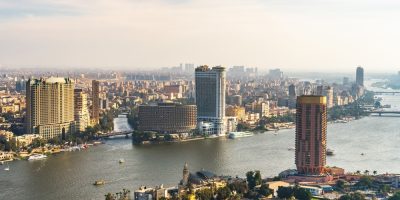-
Lebanon
Lebanon – Credit Incentives and Financing Start-ups, Real Estate and Tourism
24 August 2017
- Corporate
- Real Estate
The economy of a country is usually supported and boosted by the Government. In Lebanon, instead, the Central Bank or Banque du Liban (BdL) has taken on the role for years now, due to the long governmental inactivity and the political impasse. The recent formation of a national unity government – after the longest presidential vacancy in the country’s history – generated hope worldwide towards a new start for the country to get back on track both at the local and the international level. Nonetheless, BdL still plays an important role, providing critical support to the real economy, as well as acting as a backstop to the financial sector.
BdL acts according to the provisions of the Code of Money and Credit that includes, among other duties, “safeguarding economic stability” and “developing the monetary and financial market”. Over the past years, consecutive packages of subsidized loans for the private sector were issued, helping to support demand. Those actions were put in place amending the basic Decision no. 6116 of March 7, 1996 regarding “Facilities that may be granted by Banque du Liban to Banks and Financial Institutions”.
As the World Bank highlighted in the report “Lebanon Economic Monitor Fall 2016”, BdL’s stimulus packages and other initiatives, in conjunction with the contributory role played by Kafalat SAL, the loan guarantee financial company, have provided significant support to the real sector, by means of subsidizing interest payments of SME borrowers, extending special guarantees to SMEs, and granting exemptions on compulsory reserves of creditors.
The latest GDP increase would have been lower without BdL’s interventions, which involve largely the tech industry and the knowledge based economy (“KBE”), but also the real estate and tourism sector.
With regard to the tech industry, to support Lebanon’s entrepreneurial ecosystem, in 2013 BdL issued Circular 331 with the dual aim of retaining local talent and attracting the expatriates to setup business in the country. The initial $400 million USD funds gave impulse to develop the technological and digital sector, encouraging the incorporation of Lebanese companies, the operations in the country without a definite time limit.
In 2016, it increased the margin of funds that banks could dedicate to the financing of this sector, by authorizing them to invest, with BdL’s guarantee, up to 4% of their own funds, compared to 3% previously.
Circular 331 has created a lively and high-standard technological environment in Lebanon, where different actors interpret essential roles to contribute to the growth and the innovation of the country.
More than 1500 companies are working in the ICT field (1500 according to the 2016 report issued by the UK Tech Hub), in addition to 8 incubators and accelerators, mentorship and business educational groups, 6 local venture capital firms and others operating in the regions. It is a matter of time until the spill-over effect contributes to the GDP growth.
With regard to real estate, Circular 427 provides an incentive by allowing banks in Lebanon to offer credit facilities to companies, funds or special vehicles for the purpose of acquiring real estate projects. The loans are subject to certain conditions set up for a) the seller, i.e. specialized real estate companies, b) the properties, and c) the purchase itself. Credit is available up to 60 percent of the value of the purchase with the remaining 40 percent financed by the purchaser from their equity excluding debt.
The main target of the measure is to boost sales of existing new real estate stock that remains unsold. Another important outcome is the enhancement of the dialogue between the actors, creating synergies and a proactive business environment around the real estate sector.
In line with the spirit, in tourism sector the most recent Circular 465 aims to boost real estate projects related to hospitality, as well investments in the tourism like, leisure parks and medical centers, through commercial banks subsidized loans (up to $ 10 million USD) for a prolonged period.
In conclusion, on one hand, it is worth to notice that credit incentives, provided through the banking sector, have played a key role in boosting and supporting the numerous segments of the Lebanese economy. On the other hand, from a regulatory perspective, critical reforms are needed to put the country back on the right track. The Government and the Parliament are working towards this direction: new upcoming projects, new laws to approve and enact, and opportunities to invest in many other sectors, like telecommunication services, electricity and water distribution, and waste management.
The author of this post is Claudia Caluori.


























